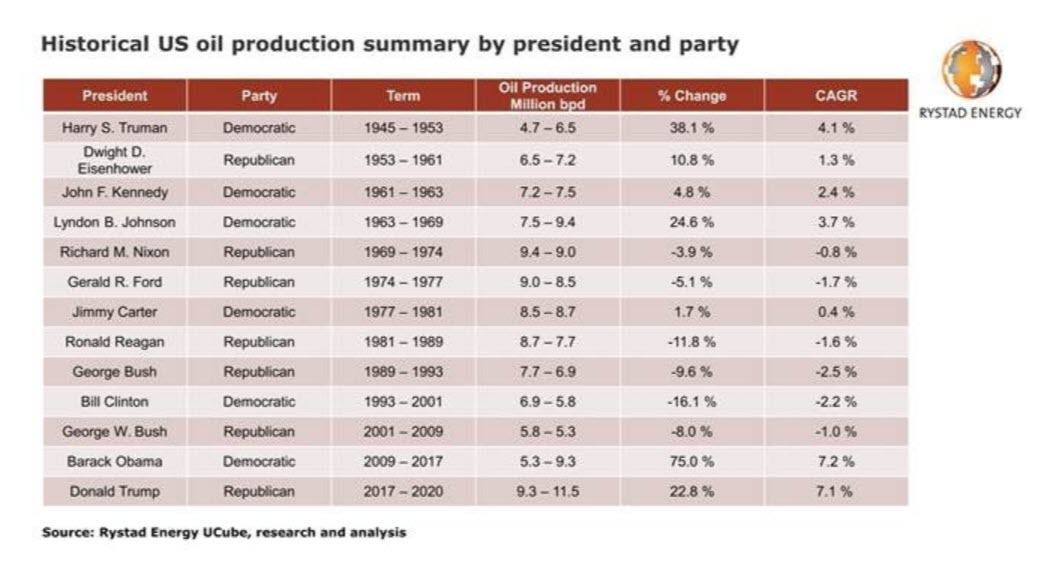First of all, look at the graphic. As with the eco
Post# of 128927
U.S oil production was for our benefit, harm to Russia was incidental. Nice job on cybersecurity by Trump, huh?
NEVER a deserved unkind word from Trump toward Putin. I think we'll find out soon enough what Putin's leverage was on Trump.

Conclusion
If Joe Biden becomes the next US president, there are clear expectations of an increased focus on the environmental aspects of US oil and gas operations. While some additional environmental policies might challenge the US producers’ economics, it is quite possible that Biden’s policies will be beneficial for them – at least in the short term.
A potential end to the ongoing trade war with China would surely help support demand and oil prices. Similarly, an increase in measures to prevent the spread of Covid-19 would benefit oil prices in 2021–2022 in our view. A potential fracking ban on federal land, as discussed above, would also most likely have a positive impact on oil prices in the short term.
Taking all these factors into consideration, it seems entirely plausible that the US oil and gas industry could benefit from a Biden presidency during the first quarters of his term amid a recovery in oil prices.
Lastly, you have to be an idiot to think we don't need to do more in developing alternative energy. What do the oil companies know that you don't?
Quote:
How the six major oil companies have invested in renewable energy projects
Features & AnalysisWindOil & Gas
By James Murray 16 Jan 2020
https://www.nsenergybusiness.com/features/oil...le-energy/
Some of the oil majors have invested heavily in renewables, such as wind and solar, as they look to transition towards cleaner energy sources
Oil and gas is often painted as the dirtiest sector within the energy industry, but major companies have begun to invest in renewable technologies in a bid to clean up the economy.
Of the six “super-majors” – BP, Shell, Chevron, Total, Eni and Exxon – many of them have pumped billions into clean energy projects, although question marks remain over whether they are doing enough.
Despite the growth in renewables, “big oil” only spent 1% of its combined budget on green energy schemes in 2018.
Matthias J Pickl, economics professor at King Fahd University of Petroleum and Minerals in Saudi Arabia, wrote a report in November 2019 discussing whether oil companies are transforming themselves into energy firms.
Titled The renewable energy strategies of oil majors – From oil to energy?, it highlighted how wind and solar are taking an increasingly important role in the energy industry, and that oil majors are “progressively positioning themselves for the proclaimed energy transition”.
“Oil firms are essentially attempting to figure out how the best presently available cash cow in the world can be replaced for the benefit of their own sustainable future,” he wrote in the report.
“Furthermore, growing concerns about climate change following the Paris Agreement may provide an additional drive for such strategy to hedge against hardening investor sentiment towards carbon emissions.”
Here, NS Energy looks into how each of the six oil majors have invested in renewable energy projects.
 (0)
(0) (0)
(0)